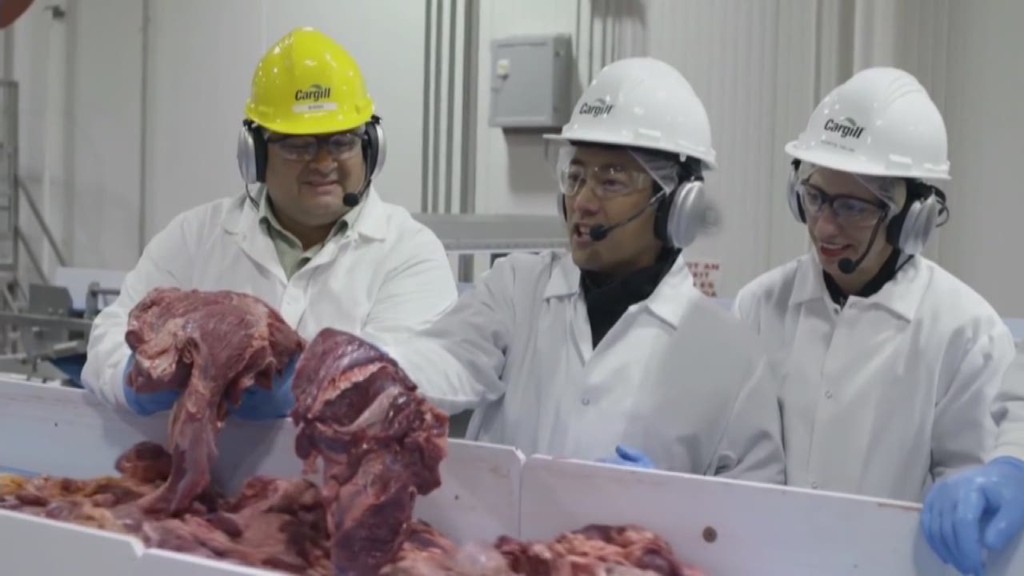
McDonald's is getting the word out: There is no "pink slime" in its McNuggets or hamburgers. And, yes, its food does rot - and that's a good thing.
As part of a new campaign, McDonald's (MCD) is asking, and answering, the challenging questions posed by its detractors.
McDonald's has launched a campaign called "Our food. Your questions." With the help of social media, the company wants to put to rest the "myth" about its food and convince consumers that it is, in fact, nutritious.
McDonald's is also inviting customers to ask food questions on Twitter (TWTR).
On its website, McDonald's displays a "pink slime" image of a viscous tubular substance, coiled up like a snake. "This is not a McDonald's image and it's not in any of our food," reads the statement over the picture.
"The chicken is ground with a bit of chicken skin and a flavorful marinade is added," says McDonald's.
McDonald's also insists that there is no "pink slime" in the burger, and that the patties are "100% pure beef." It says it stopped using the controversial product, from Beef Products Inc., in 2011.
Related: 'Pink slime' is back and headed for your burger
One of the questions -- "Why doesn't your food rot?" -- seems to directly address an experiment conducted by CNN's Morgan Spurlock in his 2004 documentary "Super Size Me." In the film, Spurlock places different McDonald's products in jars and observes them over time.
"Big Mac, still, looks like we just bought that thing," says Spurlock, three weeks into the experiment. After another couple of weeks, the sandwiches finally succumbed to the ravages of time. Though after 10 weeks, the McDonald's fries do not appear to have decomposed.
No worries. McDonald's insists that its food can, in fact, rot.
"You might have seen experiments which seem to show no decomposition in our food," explained McDonald's. "Most likely, this is because the food has dehydrated before any visible deterioration could occur."
Related: Olive Garden flunks CNNMoney taste test
McDonald's answers another question that has surely been weighing on the minds of many: Does the McRib use the same plastic that's in yoga mats?
The answer? Yes!
The company says that a chemical called azodicarbonamide, or ADA, is baked into the McRib rolls to keep the texture consistent. ADA is also used in non-food products such as yoga mats, says McDonald's. But the company emphatically denied that the McRib contains plastic.
"Think of salt: the salt you use in your food at home is a variation of the salt you may use to de-ice your sidewalk," said McDonald's. "The same is true of ADA - it can be used in different ways."

